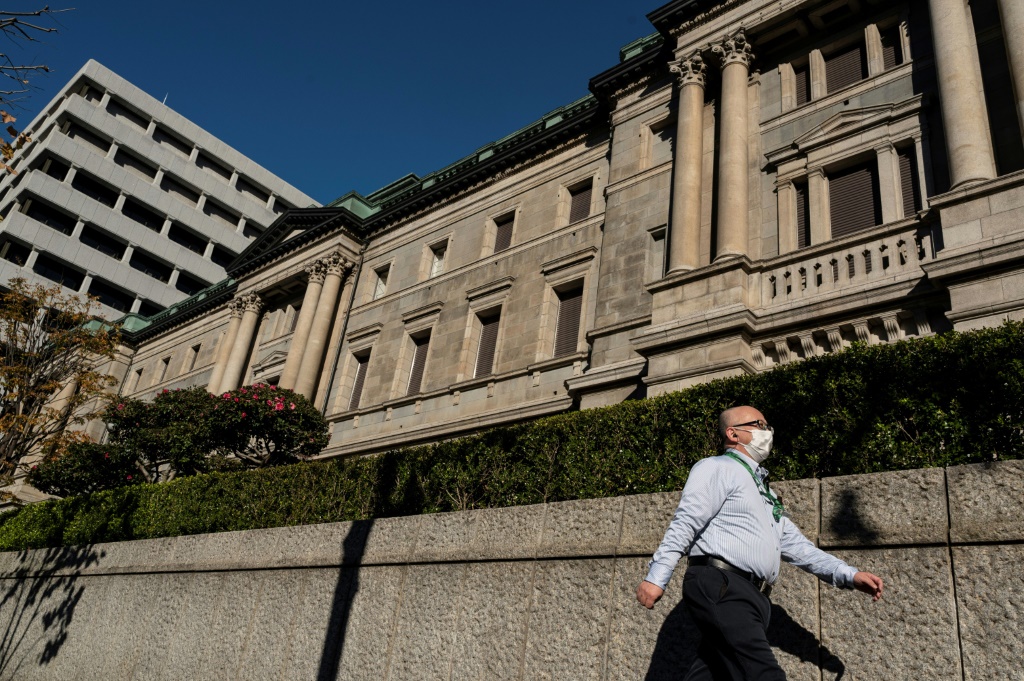Hong Kong, China (AFP) — Asian stocks mostly fell Tuesday but pared early losses after data showed China’s economy grew more than expected last year, while traders remain hopeful about the country’s outlook as it emerges from years of debilitating zero-Covid measures.

The three percent expansion was the slowest in four decades — excluding pandemic-hit 2020 — and sharply down from the previous year, as widespread lockdowns and other containment policies hammered business activity.
However, it beat the 2.7 percent forecast and the fourth-quarter reading also topped estimates, while a healthy reading on retail sales provided extra cheer.
There is now growing optimism that the reopening that started last month will fuel a strong rebound this year and help support the global economy as central banks try to avert a recession caused by soaring inflation and interest rate hikes.
“Looking forward, we expect to see a sustained economic recovery in 2023 as a result of reopening and policy stimulus,” said Chaoping Zhu, of JP Morgan Asset Management.
“Service sectors should be the early beneficiary when pent-up demand is released.”
Regional markets, however, struggled to maintain the strong momentum that has characterised trading at the start of the year, which has been powered by China hopes and signs that the battle against inflation appears to be turning in central banks’ favour.
Hong Kong, Shanghai, Sydney, Seoul, Singapore, Taipei and Manila were all in negative territory, though there were gains in Tokyo, Wellington and Jakarta.
Wall Street was closed Monday for a public holiday.
Still, analysts remain upbeat.
“We are in the early phase of recovery in terms of asset prices,” said Paras Anand, at Artemis Investment Management.
“A recovery or normalisation of the Chinese economy will be positive for global growth at the margin.”
Traders are now awaiting a key policy decision by the Bank of Japan on Wednesday, which comes after it last month surprised markets by announcing a shift away from its ultra-loose monetary policy, sending the yen soaring.
The bank has kept a tight rein on bond yields for years in an attempt to kickstart economic growth, but it came under pressure in recent months as other countries ramped up interest rates to fight inflation, pushing the yen to multi-decade lows.
Speculation is now swirling that it will further tweak policy or indicate that another adjustment is in the pipeline.
“The real market surprise will be if the Bank of Japan leaves policy unchanged or abandons yield curve control completely,” Tony Sycamore, of IG Australia, wrote in a note.
There will also be a focus on speeches by top finance officials at the annual Davos summit in Switzerland this week.
And Wall Street titans including Goldman Sachs, Morgan Stanley and Netflix are due to release earnings, which could give an insight into how business is coping with the effects of higher rates.
– Key figures around 0230 GMT –
Tokyo – Nikkei 225: UP 1.2 percent at 26,140.51 (break)
Hong Kong – Hang Seng Index: DOWN 1.0 percent at 21,533.19
Shanghai – Composite: DOWN 0.3 percent at 3,220.17
Euro/dollar: DOWN at $1.0811 from $1.0824 on Monday
Dollar/yen: UP at 128.95 yen from 128.55 yen
Pound/dollar: DOWN at $1.2181 from $1.2204
Euro/pound: UP at 88.75 pence from 88.66 pence
West Texas Intermediate: DOWN 1.1 percent at $79.00 a barrel
Brent North Sea crude: DOWN 0.1 percent at $84.40 a barrel
New York – Dow: Closed for public holiday
London – FTSE 100: UP 0.2 percent at 7,860.07 (close)







